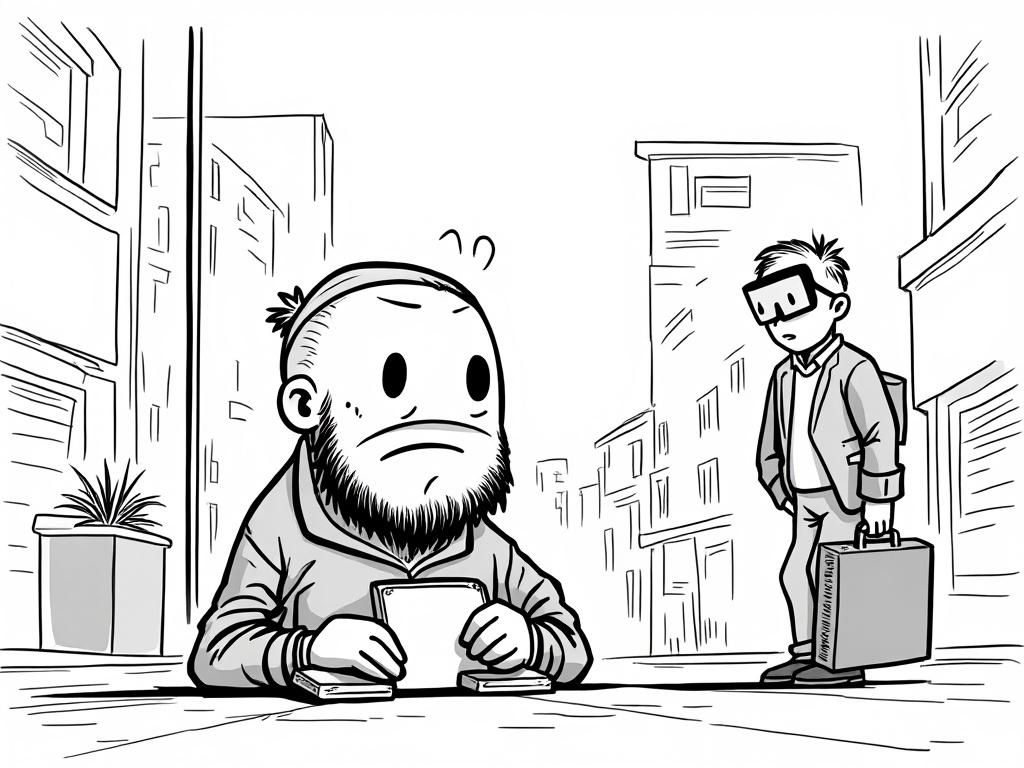
Homelessness in Greece: Understanding the Crisis and Finding Solutions
Reading time: 12 minutes
Table of Contents
- Understanding the Crisis
- Root Causes and Contributing Factors
- Most Vulnerable Populations
- Government Response and Support Systems
- Housing Solutions and Market Dynamics
- Success Stories and Best Practices
- Pathways Forward: A Strategic Roadmap
- Frequently Asked Questions
Understanding the Crisis
Ever wondered how a country blessed with stunning Mediterranean coastlines and rich cultural heritage could face such a pressing homelessness crisis? You’re not alone in questioning this paradox. Greece’s homelessness situation represents one of Europe’s most complex social challenges, deeply intertwined with economic upheaval, migration pressures, and systemic housing shortages.
The numbers tell a sobering story. According to recent estimates by the Greek Ministry of Labor and Social Affairs, approximately 20,000-25,000 people experience homelessness across Greece, with Athens accounting for nearly 40% of this population. However, these figures likely underestimate the true scope, as many individuals experiencing housing insecurity remain invisible to official counts.
Here’s the straight talk: Greece’s homelessness crisis isn’t just about individual misfortune—it’s about systemic failures that require strategic, multi-layered solutions.
The Human Face Behind Statistics
Consider Maria, a 45-year-old former hotel worker from Thessaloniki. When the tourism industry collapsed during the economic crisis, she lost her job and subsequently her apartment. Despite having professional qualifications, she struggled to find stable employment and eventually found herself sleeping in public spaces. Maria’s story illustrates how quickly circumstances can change and how traditional support systems can fail during widespread economic disruption.
Regional Variations and Hotspots
The homelessness landscape varies dramatically across Greece’s regions:
Regional Homelessness Distribution
Root Causes and Contributing Factors
Understanding Greece’s homelessness crisis requires examining the perfect storm of factors that converged over the past decade. The 2008 financial crisis didn’t just impact Greece—it fundamentally restructured the country’s social and economic fabric.
Economic Devastation and Its Aftermath
The economic crisis hit Greece harder than almost any other European nation. Unemployment soared to 27.5% at its peak in 2013, with youth unemployment reaching an staggering 60%. When the European Central Bank and International Monetary Fund imposed austerity measures, public spending on social services was slashed by nearly 40%.
“We witnessed an entire generation lose their economic footing within a matter of years,” explains Dr. Dimitris Parsanoglou, a social policy researcher at the University of the Aegean. “The traditional family support networks that historically prevented homelessness became overwhelmed when multiple family members lost employment simultaneously.”
Housing Market Pressures
Greece’s housing market presents a unique paradox: thousands of empty properties coexist with widespread housing insecurity. Key factors include:
- Property Taxation Changes: New property taxes made homeownership expensive for middle-class families
- Rental Market Instability: Short-term vacation rentals reduced long-term housing stock in urban areas
- Construction Halt: New construction dropped by 80% between 2008-2018
- Foreclosure Crisis: Over 150,000 properties faced foreclosure proceedings
Migration and Refugee Impact
Greece serves as a primary entry point for migrants and refugees entering Europe. While international attention focuses on refugee camps, many asylum seekers eventually end up in Greek cities, competing for limited affordable housing and social services. This isn’t about blame—it’s about understanding resource strain on an already struggling system.
Most Vulnerable Populations
Homelessness in Greece doesn’t affect all populations equally. Certain groups face disproportionate risks and barriers to accessing support.
Youth Aging Out of Care
Young adults leaving institutional care represent one of Greece’s most vulnerable populations. Unlike many European countries, Greece lacks comprehensive transitional housing programs for care leavers. Research by the Greek NGO “SOS Children’s Villages” found that 65% of youth aging out of care experience housing instability within their first year of independence.
Take Alexandros, who left state care at 18 with minimal life skills training and no family support network. Despite receiving a small monthly allowance, he couldn’t secure stable housing in Athens’ competitive rental market. His experience highlights systematic gaps in transitional support services.
Mental Health and Substance Use Challenges
The intersection of mental health issues and homelessness creates particularly complex situations. Greece’s mental health infrastructure, already underdeveloped before the crisis, suffered further cuts during austerity measures. Community mental health centers reduced their operating hours, and psychiatric hospitals discharged patients without adequate community support.
| Population Group | Risk Factors | Estimated Numbers | Key Challenges |
|---|---|---|---|
| Single Men (25-55) | Unemployment, addiction | 8,000-10,000 | Limited shelter capacity |
| Families with Children | Eviction, job loss | 3,500-4,500 | School disruption |
| Elderly (65+) | Pension cuts, health costs | 2,000-2,500 | Health complications |
| Young Adults (18-25) | Care system exit | 1,800-2,200 | Lack of support networks |
| Women | Domestic violence, poverty | 4,000-5,000 | Safety concerns |
Government Response and Support Systems
Greece’s response to homelessness has evolved significantly since the crisis peak, though challenges remain substantial. The current approach combines emergency accommodation, social services, and housing assistance programs.
National Strategy and Policy Framework
In 2020, Greece adopted its first comprehensive National Strategy for Social Inclusion and Poverty Reduction, which includes specific targets for addressing homelessness. The strategy aims to reduce rough sleeping by 50% by 2025 and increase supported housing options by 40%.
Key policy initiatives include:
- Housing First Pilot Programs: Athens and Thessaloniki launched Housing First initiatives targeting chronically homeless individuals
- Rental Assistance Expansion: The government increased housing allowances for vulnerable families
- Emergency Shelter Network: Additional shelter beds were created in major cities
- Integrated Support Services: Multi-disciplinary teams now coordinate health, employment, and housing services
Municipal-Level Innovations
Greek municipalities have become laboratories for innovative approaches. Athens’ “Open City” initiative, launched in 2018, represents one of Europe’s most comprehensive urban homelessness responses. The program combines:
- Mobile outreach teams operating 24/7
- Transitional housing facilities with support services
- Employment training programs specifically for homeless individuals
- Health clinics providing specialized homeless healthcare
Thessaloniki developed a different model focusing on prevention. Their “Housing Security Program” identifies families at risk of eviction and provides temporary financial assistance combined with budgeting counseling. Early results show a 70% success rate in preventing homelessness among participating families.
Housing Solutions and Market Dynamics
Addressing homelessness requires understanding Greece’s broader housing landscape and exploring innovative solutions that work within existing market constraints.
Social Housing Expansion
Greece historically relied on family ownership rather than social housing, leaving the country with one of Europe’s smallest public housing stocks. Recent initiatives aim to change this dynamic through:
- Conversion Programs: Transforming vacant commercial buildings into affordable housing units
- Public-Private Partnerships: Collaborating with developers to include affordable units in new construction
- Cooperative Housing Models: Supporting community-led housing initiatives
Market-Based Solutions
For those considering long-term housing stability in Greece, the property market offers opportunities worth exploring. Those looking to buy home in greece will find a market that has stabilized since the crisis, with property prices offering good value compared to other European destinations.
The Greek government has implemented several programs to attract property investment while addressing housing needs:
- Golden Visa Program: Attracts international investment in Greek real estate
- Renovation Incentives: Tax breaks for restoring abandoned properties
- Rural Development Grants: Funding for housing projects in underserved areas
Success Stories and Best Practices
The Praksis Model
Praksis, a Greek NGO, has developed one of the country’s most successful integrated support models. Their approach combines immediate housing assistance with comprehensive social services. Over five years, they’ve helped 2,400 individuals transition from homelessness to stable housing, with an 80% success rate for those completing their program.
Their secret? “We don’t just provide a bed—we rebuild lives,” explains Maria Stavropoulou, Praksis Program Director. “Each person receives individualized support addressing their specific barriers to housing stability.”
Community-Led Initiatives
In Patras, a community-led initiative called “Neighborhood Solidarity” has created an innovative support network. Local businesses, residents, and social services collaborate to provide emergency accommodation, job opportunities, and social integration support. This grassroots model has successfully reintegrated 150 individuals into stable housing over three years.
Pathways Forward: A Strategic Roadmap
Greece stands at a critical juncture in addressing homelessness. The foundation for systematic change exists, but success depends on strategic implementation and sustained commitment. Here’s your roadmap for understanding and contributing to solutions:
Short-Term Actions (Next 12 Months)
- Expand Emergency Services: Increase shelter capacity by 25% in major cities
- Strengthen Outreach: Deploy additional mobile teams in underserved areas
- Enhance Data Collection: Implement comprehensive tracking systems for service coordination
- Develop Rapid Rehousing: Create fast-track programs for families with children
Medium-Term Strategies (2-5 Years)
- Scale Housing First Programs: Expand successful pilot programs to all major cities
- Build Social Housing Stock: Convert 5,000 vacant properties to affordable housing
- Integrate Mental Health Services: Embed mental health support in all housing programs
- Strengthen Prevention: Develop early intervention systems for at-risk populations
Long-Term Vision (5+ Years)
Greece has the opportunity to become a European leader in innovative homelessness solutions. By combining traditional Mediterranean community values with evidence-based practices, the country can create a model that other nations could adopt.
The key question isn’t whether Greece can solve homelessness—it’s whether Greek society will sustain the political will and resource commitment necessary for lasting change. As economic recovery continues and tourism rebounds, will addressing homelessness remain a priority, or will it fade from public attention?
Your role in this story matters. Whether you’re a policymaker, service provider, community member, or simply someone who cares about social justice, understanding these complex dynamics helps build the informed citizenry necessary for sustainable solutions. The path forward requires all of us working together, combining compassion with strategic thinking to ensure no one is left behind in Greece’s recovery journey.
Frequently Asked Questions
What is the current scope of homelessness in Greece?
Current estimates suggest 20,000-25,000 people experience homelessness in Greece, with Athens accounting for approximately 40% of this population. However, these numbers likely underestimate the true scope, as many individuals experiencing housing insecurity remain uncounted. The crisis encompasses both visible rough sleeping and hidden homelessness, including people staying temporarily with friends or in inadequate accommodations.
How has the economic crisis affected homelessness rates?
The 2008 financial crisis and subsequent austerity measures dramatically increased homelessness in Greece. Unemployment reaching 27.5% at its peak, combined with 40% cuts to social services, overwhelmed traditional family support networks. Many middle-class families lost homes due to job loss and increased property taxes, while reduced public spending eliminated crucial safety net programs that previously prevented homelessness.
What are the most effective solutions being implemented?
The most successful approaches combine immediate housing assistance with comprehensive support services. Housing First programs in Athens and Thessaloniki show 70-80% success rates, while prevention programs in Thessaloniki help families avoid eviction. Integrated support models that address mental health, employment, and social services simultaneously prove more effective than single-service approaches. Community-led initiatives also demonstrate success when they combine local business support with professional social services.

Article reviewed by Victor Moreau, Timberland & Natural Resources | Sustainable Asset Monetization, on June 4, 2025
